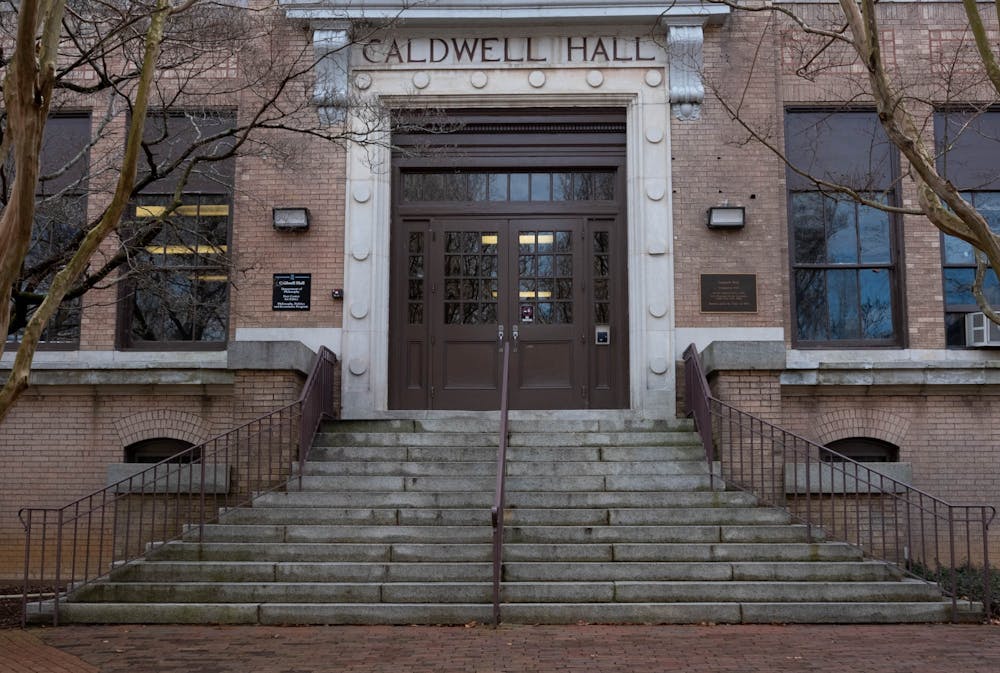Caldwell Hall is home to the UNC Philosophy Department and the Parr Center for Ethics. It hosts classes, events and guest speakers, with multiple professors having their offices on the second floor and basement.
It’s an old building filled with new ideas about ethics, metaphysics, logic and political theory. Built in 1912, it's a standing reminder of the ongoing accessibility issues on UNC's campus.
The building only has one accessible door in the form of a street-level entrance that leads to the basement. Every other door requires a trip up or down a staircase. To get to any Caldwell classrooms using that on-grade door also requires going up the stairs, as the building has no elevator.
UNC is the fifth-ranked public university, and UNC's philosophy department is tied for 12th in the country. Yet, there is no way for anyone who uses a wheelchair to access opportunities in some classrooms. It’s a disgrace.
This is UNC’s accessibility issue in an infuriating nutshell – an aging campus, basic accommodations being out of reach and an administration that either can’t or won’t step up.
It might seem like a small issue. Caldwell only has three undergraduate classrooms, and according to an email from Accessibility Resources and Services (ARS), these are three of only five totally inaccessible classrooms on campus. The philosophy department does its best to work with students and ARS to get around the building's problem, though Associate Professor and Philosophy Department Chair Matthew Kotzen said in an email that “these efforts fall short of what these individuals deserve.”
These accommodations are a bandaid on a bullet wound.
The main problem isn't that the University can’t provide accommodations, but rather that they have to try and accommodate in the first place. Kotzen explains, “I have in mind the world-class scholar and teacher who doesn't even bother applying for a job in the UNC Philosophy Department because Caldwell Hall communicates to them that the department or the University does not take accessibility seriously.”
The general problem causing this is fairly clear. UNC has been underfunded for years, from the cuts implemented across the System by the General Assembly in 2011, to the revenue freefall experienced during the COVID-19 pandemic. UNC, despite its continuing enrollment growth and strong endowment, simply does not have enough money.




